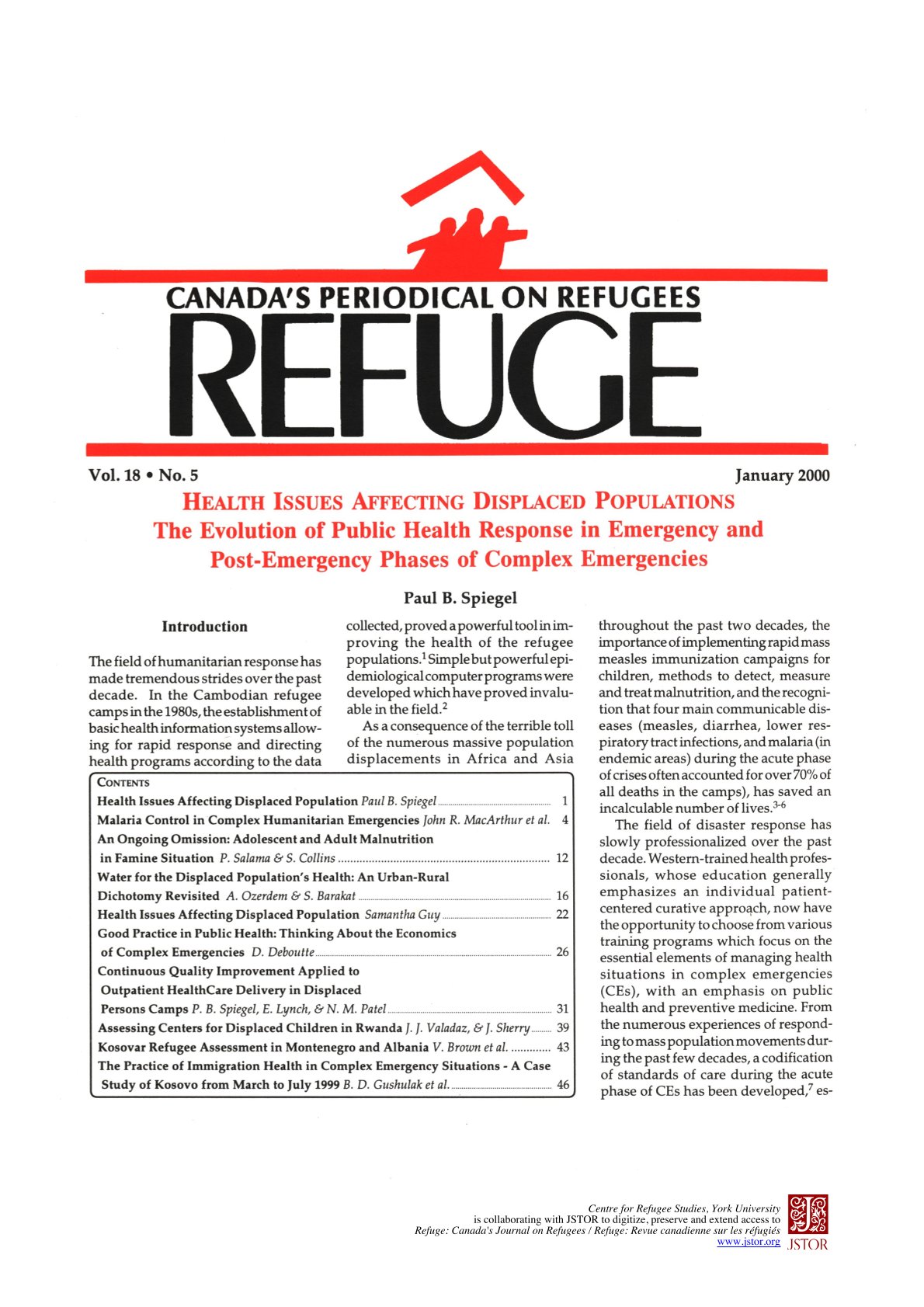Malaria Control in Complex Humanitarian Emergencies
DOI:
https://doi.org/10.25071/1920-7336.22045Keywords:
complex emergencies, malaria, mass displacement, public health, epidemiologyAbstract
War, famine, civil conflict, and political persecution displacing large populations often leads to severe disruptions in health services, disease control programs, food distribution systems, and loss of shelter. When the dimensions of the crisis overwhelm the local and international communities' ability to respond quickly and effectively, significant morbidity and mortality result in what is termed a complex humanitarian emergency. The public health consequences have been most severe in underdeveloped nations where most deaths are caused by communicable diseases, which include malaria. This paper describes and analyses the factors that contribute to malaria morbidity and mortality and proposes effective measures to combat them.Metrics
Downloads
Published
How to Cite
Issue
Section
License
Copyright (c) 2000 John R MacArthur, Holly A Williams, Peter B Bloland

This work is licensed under a Creative Commons Attribution-NonCommercial 4.0 International License.
Refuge authors retain the copyright over their work, and license it to the general public under the Creative Commons Attribution-Non Commercial License International (CC BY-NC 4.0). This license allows for non-commercial use, reproduction and adaption of the material in any medium or format, with proper attribution. For general information on Creative Commons licences, visit the Creative Commons site. For the CC BY-NC 4.0 license, review the human readable summary.







